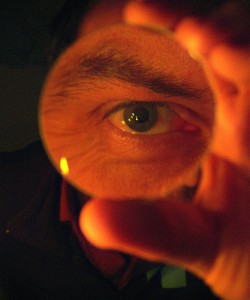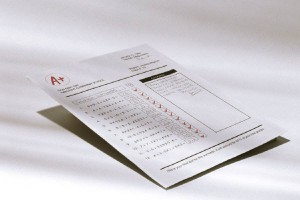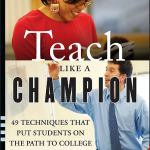conference curriculum EFL expectations JALT language courses Language learning presentations readers Reading teaching theory university
by sendaiben
leave a comment
Extensive Reading Seminar 2011
I just got back from the 2011 ER Seminar, held in Okayama this year.
Had a good time, attended some useful presentations, and saw a bunch of great people. The best conference I have been to in a long time. Especially enjoyed the plenaries and Nakano sensei’s presentation. Got some actionable ideas to adopt(steal) for my classes.
Okayama also seemed like a nice place during the very limited time I was there 🙂
Miles Grogan was kind enough to shoot my presentation for me with my iPhone, so I have finally managed to upload one of my presentations to Youtube:
The quality is not great, but you get the idea. Here are the slides:
expectations life in Japan presentations teaching theory university writing
by sendaiben
leave a comment
Focus
My life is pretty busy, and to make it worse I tend to get interested in new things and lose interest in things pretty frequently. Focus, or lack of focus, is a big problem for me.
As I mentioned in my report card post I got a lot done last year. While I am pretty happy about that, I also get the feeling a lot of it was quite shallow. Some of it was okay, but not exactly legacy work.
This year will be different. I am going to consciously do less work, but make it count for more. To do more meaningful work, and to say no to more things. I am going to focus.
Wish me luck!
business expectations life in Japan living in Japan presentations Review teaching university
by sendaiben
1 comment
Annual Review
I’ve been doing an annual review of the year, as well as looking ahead to 2011, and it’s been incredibly useful.
I’ve managed to do both much more, and much less, than I thought. Here is the 30-second report card:
- (A+) presentations and general exposure a big win: I presented a LOT this year, and really enjoyed meeting people at conferences all over Japan. Hoping to continue that next year
- (A) Cambridge English a solid satisfactory: we grew about 50% and greatly improved our programs
- (B) university work went well: my classes need work but are improving
- (B-) I completed all my MA assignments for the year, albeit at the bare minimum level
- (C) I did not write nearly enough, and didn’t manage to finish a couple of really interesting projects
- (D) my work/life balance is still completely out of whack, although I did manage to start watching my diet/exercising
How was your year? More importantly, what can it tell you about how to approach 2011?
Amazon.com curriculum EFL eikaiwa ES expectations JHS kids reviews teaching The Book Depository theory university
by sendaiben
5 comments
Teach Like a Champion in Japan
Teach Like a Champion is a recent book by Doug Lemov. Despite the cheesy title, I found it interesting, inspiring, and useful, and heartily recommend it to any teacher facing classes (the techniques are probably less useful for teaching one on one).
The book was written from a US K-12 (kindergarten to twelfth grade) perspective, so is a perfect fit for teachers working in elementary or junior high schools. Not all of the techniques are suitable for high school or university students, but a lot of them are, particularly in Japan, so even teachers working at those levels should consider it.
Teach Like a Champion is based on a philosophy of efficiency (what works best for the most students in the least amount of time). It’s a mindset that I admire and have been trying to apply to my classes here for quite some time now. One of my favourite parts of the book is where Lemov talks about the opportunity cost of activities:
“(reading) is a high-quality activity (when done efficiently) that can be carried out in any classroom, at any time, and with limited additional preparation or expense required. You can always invest any stretch of time, short or long, in meaningful reading and reap a strong and predictable retun. Furthermore, if you know you could always be doing meaningful reading -in any class, at any time -you can examine your other investments of time critically: do they exceed the value of meaningful reading? Are they potentially higher return but riskier and therefore should be balanced with something more reliable? As you ask these questions, you may well find that reading crowds out some of the other ways you invest your time.”
This mindset permeates the book, and makes it very persuasive. The idea of the opportunity cost of classroom activities is a simple one that I had never really thought about specifically. On reflection, my benchmark activity teaching English in Japan is extensive reading. Now, for me to do something else in class requires that it be more profitable than ER. Using this idea makes a huge difference to lesson planning.
I really like how Lemov brings a critical eye to classroom practice, making the overall tone of the book one of experimentation. The bulk of the book, however, is taken up by 49 very specific teaching techniques. Lemov claims that after observing hundreds of masterful teachers, he found that many of them were using the same strategies and activities, which he describes in Teach Like a Champion. There is also an online supplement with videos of the teachers in question using the techniques. In my opinion it is worth buying the book just to get access to this resource.
Teach Like a Champion is not perfect. It can feel a little cultish at times (all the techniques have names, which Lemov explains as being necessary in order to clearly convey what he is talking about, but names like “at bat” or “pepper” sometimes feel a bit silly), and the focus is very much on the US K-12 system. However, most of the techniques are universal, and I have successfully implemented them with both small group eikaiwa kids and university classes. All things considered, Teach Like a Champion is one of the best books on teaching I have read (I’ve actually read it twice, and am about to re-read it again to refresh everything), and a couple of friends who have also read it feel the same way.
Unfortunately it doesn’t seem to be available through Amazon.co.jp, so I ended up buying the Kindle version from Amazon.com and reading it on my iPhone, but it’s worth getting a copy sent from the US. For a free postage and packing option, check out The Book Depository.
* Disclaimer: the links in this review are affiliate links. If you click on the links and then buy the product, Amazon or The Book Depository will pay me about 3% of the cover price. This comes out of their profits, it does not make the product more expensive for you than buying it normally. Think of it as a tip to this blog. Of course, if you prefer, you can go straight to their websites and search for the book yourself. I won’t hold it against you 😉
conference curriculum EFL expectations JALT language courses Language learning presentations teaching testing theory university
by sendaiben
leave a comment
Raising Expectations, Measuring Results
It was a great honour to be asked to present on student learning outcomes by OUP. I seized the chance to talk about how important expectations are, how raising expectations (of students, teachers, and institutions) is likely to be the key to improving English education in Japan, and how important effective assessment is. Of course I also talked about student learning outcomes and how useful the CEFR can be when thinking about our courses.
I had a great audience for this and thoroughly enjoyed the presentation.



